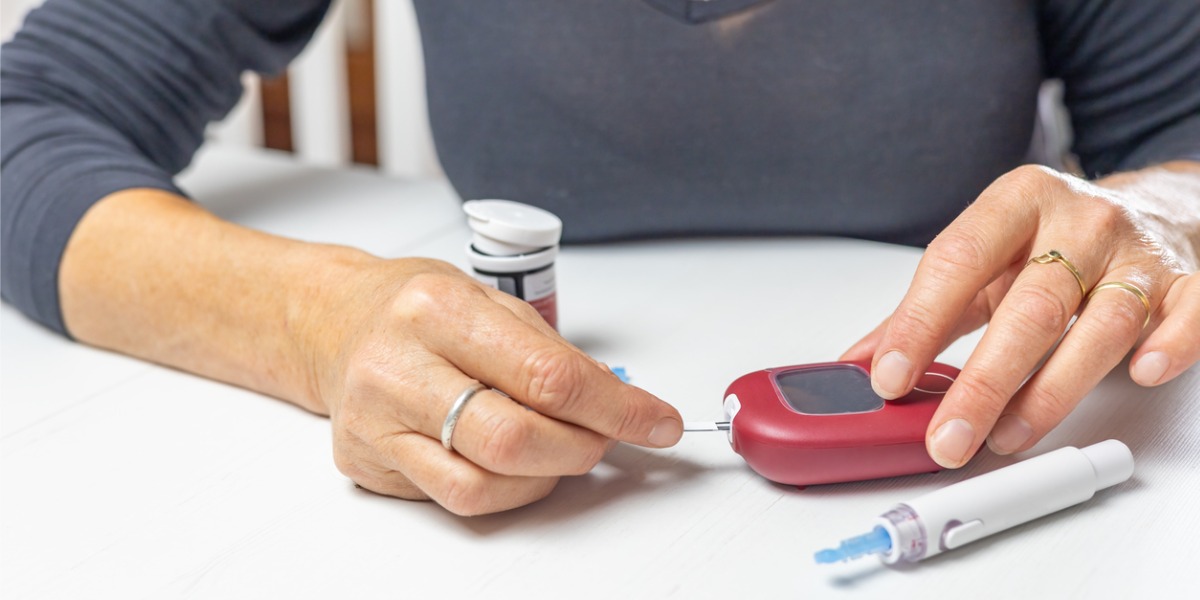In the 1600s, an English physician named Thomas Willis wrote that diabetes is caused by “sadness or long sorrow and other depressions.”
More than 300 years later, advanced research indicates that he may have been correct.
Through the centuries, many other medical experts noted an association between diabetes – specifically diabetes mellitus, or Type-2 diabetes – and depressive disorders. Individuals with this form of diabetes show elevated rates of depression, and vice-versa. People with depression show elevated rates of Type-2 diabetes.
However, as is often the case when discussing mental health and co-occurring conditions, it’s extremely difficult to determine a cause/effect relationship.
For example, some people theorize the stress of living with Type-2 diabetes pushes a person into depression. Others suggest certain lifestyle habits characteristic of depressive disorders contribute to the development of diabetes.
We may be closer than ever to determining which of these scenarios is more likely.
The Prevalence of Co-Occurring Depression and Diabetes
Before we explore research into the cause/effect association between depression and diabetes, let’s take a moment to discuss the prevalence of these two conditions.
Depression Statistics
Depression is one of the most common mental health disorders in the United States and throughout the rest of the world:
- According to the World Health Organization (WHO), depression affects about 6% of adult women and 5% of adult men across the globe.
- This means about 280 million adults currently live with depression.
- In the U.S., the National Institute of Mental Health (NIMH) reports about 3% of adult women and 6.2% of adult men had at least one major depressive episode in 2021.
- That means over 21 million adults in the U.S. have depression.
Diabetes Statistics
Like depression, diabetes also affects millions of people in the U.S. and other nations:
- WHO data indicates diabetes impacts about 5% of the global population.
- In 2019, the WHO reported, diabetes caused about 1.5 million deaths.
- The Centers for Disease Control and Prevention (CDC) estimates that 3% of the U.S. population (or about 37.3 million people) have with diabetes.
- The CDC also reported that diabetes causes about 103,000 deaths per year, making it the eighth leading cause of death in the U.S.
Co-Occurring Depression and Diabetes Statistics
A March 2018 paper in the journal “Dialogues in Clinical Neuroscience” reported the following statistics about co-occurring depression and diabetes:
- The rate of depression is likely twice as high among people with diabetes than among those who don’t have diabetes.
- One study found that 27% of women and 18% of men with diabetes also developed a depressive disorder.
- Another study estimated an additional 25% of people with diabetes have symptoms of depression that don’t rise to the level of a depressive disorder diagnosis.
- The risk of functional disability is 7.5 times higher among people with depression and diabetes than among individuals who don’t have either disorder.
- In the U.S., about half of diabetes patients with a co-occurring depressive disorder don’t get professional care for their depression.
Risk Factors for Diabetes and Depression
In the Dialogues in Clinical Neuroscience article that we refer to above, author Norman Sartorius, MD, PhD, emphasized the importance of learning more about the co-occurrence of mental health disorders such as depression and chronic conditions such as diabetes.
“People with mental disorders live 10 years less than people without mental disorders, and noncommunicable diseases are the main reason for their death,” he wrote.
Diabetes and Depression: Shared Risk Factors
- Adverse childhood experiences (ACEs)
- Low birth weight
- Obesity
- Poor sleep habits
- Poor nutritional habits
- Sexual dysfunction
- Excessive exposure to stress
- Lack of exercise
- Low socioeconomic status
- Being female
Of course, listing these common factors doesn’t address the cause/effect relationship between depression and diabetes.
Someone with depression may report disrupted sleep, poor eating habits, and low motivation for exercise, which can raise their risk of diabetes.
But does this mean depression causes diabetes?
Or could sleep, eating, and exercise habits be a result of diabetes, and thus a contributing factor for depression?
An article in the April-June 2016 edition of the Journal of Medicine and Life addressed this conundrum, demonstrating how the brain’s response to stress can promote both depression and diabetes, and possibly both.
Impact of Stress on Diabetes and Depression
Stress and Diabetes:
- Chronic stress can activate both the hypothalamus-pituitary-adrenal axis (HPA-axis) and the sympathetic nervous system (SNS). This results in increased production of cortisol, adrenaline, and noradrenaline.
- Elevated levels of these hormones plus extended SNS activation can cause insulin resistance, which may in turn lead to obesity, metabolic syndrome, and Type-2 diabetes.
Stress and Depression:
- Cortisol and other hormones elevated due to stress can activate the fear system, which can cause anxiety and lack of appetite.
- Overabundance of these hormones can disrupt the brain’s reward system. This can lead to depression as well as powerful cravings for food and other substances.
The authors of the Journal of Medicine and Life article also noted that excess cortisol can disrupt the production of new cells within the hippocampus, a brain structure linked with both depression and Type-2 diabetes.
To summarize what we know thus far:
- Many people with depression also have diabetes, and vice versa.
- Several common factors increase a risk for both disorders.
- Some behaviors characteristic of depression may increase diabetes risk.
- Undiagnosed diabetes may also cause these behaviors, so they may increase depression risk.
To break this cause/effect logjam, a team of French and British researchers employed a technique called Mendelian randomization. We’ll discuss their efforts now.
Identifying Depression as a Risk Factor for Diabetes
The international team that used Mendelian randomization to assess the relationship between depression and Type-2 diabetes published their findings in the September 2023 issue of the journal Diabetes Care.
The team assessed genetic information from more than 500,000 individuals in England and Finland. They used data collected by the UK Biobank and FinnGen research project. Their assessment yielded the following conclusions:
- Depression has “a significant causal effect” on type-2 diabetes.
- No similar effect indicated type-2 diabetes influences depression.
- High body mass index (BMI) is partially responsible for the impact of depression on diabetes.
- The team found seven gene variants linked to both depression and diabetes.
According to an article about this study published by Diabetes UK, the shared gene variants impact insulin production in the body. They’re also related to inflammation levels in the brain and pancreas.
The research team also observed:
- Doctors who prescribe antidepressants to people with an elevated risk of Type-2 diabetes should begin with SSRIs. These provide better glycemic control.
- Clinicians should encourage people with depression to exercise regularly, follow a healthy diet, and get an adequate amount of sleep. These behaviors reduce risk for Type-2 diabetes.
- While the psychological impact of living with diabetes has long been associated with depression, a recent study involving subjects from 14 countries found that this impact does not meet the criteria for a diagnosis of major depressive disorder.
“Our discovery illuminates depression as a contributing cause of Type-2 diabetes and could help to improve prevention efforts,” said Inga Prokopenko, the study’s lead author.
“The findings are important for both individuals living with the conditions and healthcare providers, who should consider implementing additional examinations to help prevent Type-2 diabetes onset in people suffering from depression,” she added.
How Will This Impact Depression Treatment?
Having either diabetes or depression can reduce life expectancy and diminish both the substance and quality of life. When both disorders occur simultaneously, the potential for significant harm can increase exponentially.
Ideally, the identification of Type-2 diabetes as a potential effect of depression will encourage more people to seek screening for a depressive disorder. For those already receiving care for depression, this finding should emphasize the importance of screening for diabetes and adopting healthy lifestyle habits.
Nutrition, exercise, and sleep are frequent points of emphasis in the effort to help people better manage the symptoms of depression. Understanding that these areas can also be crucial for reducing the risk of diabetes may lead to more people following their clinician’s advice regarding healthy lifestyle behaviors.
While the results of the most current research may not have an obvious immediate impact on treatment for depressive disorders, every new insight into the potential causes and effects of depression can improve clinicians’ ability to provide the most focused care to each person they treat.
As researchers learn more about the link between depression and diabetes, we’re confident these advances will lead to more refined medications and better targeted therapeutic interventions.


 Gianna Melendez
Gianna Melendez Jodie Dahl, CpHT
Jodie Dahl, CpHT